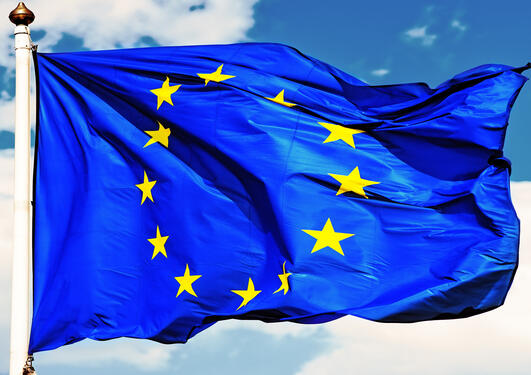Part 2 - The EU taxonomy
Because of covid-19, this seminar will be digital. We will split the seminar into two parts; part 1 will be on May 10th and part 2 on May 19th. In this half-day seminar the different speakers will discuss how their field may be affected by the EU Taxonomy for sustainable activities.

Main content
"In order to meet the EU’s climate and energy targets for 2030 and reach the objectives of the European Green Deal, it is fundamental to direct investments towards sustainable projects and activities...
...The EU taxonomy is a classification system, establishing a list of environmentally sustainable economic activities. The EU taxonomy is an important enabler to scale up sustainable investment and to implement the European Green Deal. Notably, by providing appropriate definitions to companies, investors and policymakers on which economic activities can be considered environmentally sustainable, it is expected to create security for investors, protect private investors from greenwashing, help companies to plan the transition, mitigate market fragmentation and eventually help shift investments where they are most needed. " - European Commission
In this half-day seminar, the different speakers will discuss how their field may be affected by the EU Taxonomy for sustainable activities. This will be part 2 of the seminar. Part 1 can be found here.
Wednesday May 19th 08:30-10:00 - Part 2:
Herlaug Fyhn (DNB) - The impact of the EU taxonomy on the banking sector
If EU is to reach its targets under the Paris agreement it will require huge investments. The transition to a net-zero emissions society cannot be funded by the public sector alone. Therefore, EU is introducing a set of regulations that will incentivize and steer private capital into the technologies and infrastructure that will decarbonize the European economies.
One central element in Europe’s Green Deal is the EU taxonomy which provides a common language that will help investors make informed decisions about what is green and sustainable. Although the taxonomy is new, sustainable finance is not a new topic. Over recent years, we see that investors are putting increasingly more pressure on the companies they finance. There are numerous investor initiatives with the target of reaching net-zero emissions in 2050, and to get there they are already reallocating capital today. The sustainability profile of companies is increasingly impacting their access to, and cost of, capital. How the market of sustainable investments is developing, and the taxonomy’s impact on the financial sector, will be addressed further in the session at UiB on May 19th.
Benedicte Staalesen Nilsen (BKK) – Taxonomy and the value of hydropower in Europe
When the first draft of the taxonomy (March 2020) defined hydro power as not being sustainable, but rather, considered a transitional technology, Norway was taken aback. However, hydro power was in the final classification defined as sustainable. That is good news for the clean batteries that Norwegian hydro power is. However, the process of the taxonomy is an illustration of how hydro power is seen as less valuable, compared to technologies such as wind and sun.
Ignacio Herrera Anchustegui (UiB) - Implications of the EU Taxonomy for the electrification of the Norwegian Continental Shelf.
The Norwegian Continental Shelf is 6 times larger than Norway’s land territory. In this space lies a great deal of the riches of the country: oil and gas deposits. Efforts have been made since 1996 by Equinor and other oil and gas companies to electricity the different activities in the Norwegian Continental Shelf. This is done to reduce the associated carbon emissions to industrial activity. Different projects are on its way to continue this electrification as well as to promote the capture and storage of carbon. The EU taxonomy will have an effect on the electrification of activities and the deployment of projects. What will be that effect is still unknown. Is a wind farm connected to an oil and gas rig considered a ‘green investment’ or is it brown? What about support to only gas but not oil projects? What about electrification from land? Is this a matter of interpretation, convenience, politics or the rule of law? These are some of the questions we will discuss in this presentation.
